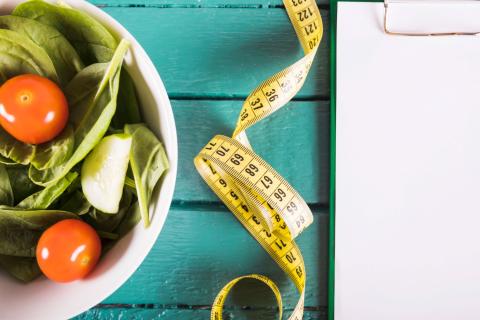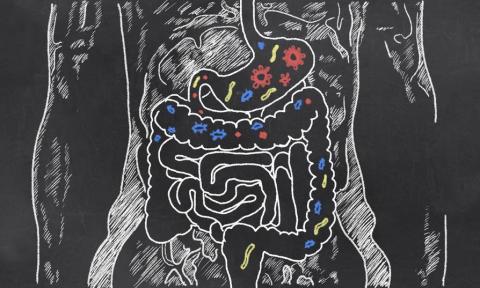CIBERobn
If you are the contact person for this centre and you wish to make any changes, please contact us.
PhD in Pharmacy, Professor of Human Physiology at the University of Navarra, member of the CIBER Physiopathology of Obesity, Carlos III Health Institute and IDISNA (Navarra)
CIBEROBN researcher and professor at the University of Valencia
Professor Emeritus of Pediatrics at the University of Valencia
Researcher Emeritus at the Research Foundation of the Valencia University General Hospital Consortium
Research group head at CIBERobn
Researcher in the Food, Nutrition, Development, and Mental Health group, Department of Biochemistry and Biotechnology, Rovira i Virgili University
Director of Nutrition and Genomics at Tufts University in Boston (USA), member of IMDEA-Alimentación (Madrid) and CIBEROBN (Carlos III Health Institute)
Co-coordinator of the working group on Nutrition of the Spanish Society of Epidemiology (SEE), Professor of Preventive Medicine and Public Health at the University of Navarra, and member of CIBERobn

Adopting a healthy diet at age 45 can add between two and three years to life expectancy in men, and between 1.5 and 2.3 years in women, according to a study based on data from more than 103,000 people in the United Kingdom. The positive impact is greater for men who follow a diabetes risk reduction diet (DRRD) and for women who follow a Mediterranean-style diet (AMED), says the article published in Science Advances.

An international team has analyzed data from nearly 60 studies involving more than 48,000 children with different types of diets and compared the nutritional profile and various health parameters between those following vegan, lacto-ovo-vegetarian, and omnivorous diets. The results indicate that plant-based diets, if well-planned, can promote healthy growth with benefits such as a better cardiovascular profile and lower cholesterol levels. However, they may have difficulty achieving adequate levels of vitamins D and B12, calcium, iron, and zinc. According to the authors, the findings underscore the need for careful planning and supplementation in children following these types of diets. The study is published in Critical Reviews in Food Science and Nutrition.

The prevalence—proportion of cases—of hypertension in minors has almost doubled worldwide between 2000 and 2020, rising from 3.4% to 6.53% in boys and slightly less in girls, according to a systematic review published in The Lancet Child & Adolescent Health. The study brings together data from nearly 444,000 children and adolescents up to the age of 19 in 21 countries.

The Planetary Health Diet promotes environmentally sustainable consumption, based, among other things, on increasing vegetable intake and reducing dairy and red meat consumption. Previous studies had found an association with better human health, although there were some conflicting results. Now, a study combining two cohorts of more than 150,000 people and a meta-analysis of 37 studies involving more than three million volunteers reinforces this association, finding that greater adherence to the diet is associated with lower all-cause mortality. The results are published in the journal Science Advances.

Consumption of ultra-processed food is associated with an increased likelihood of having prodromal signs of Parkinson's disease - symptoms that precede the disease - says a study published in Neurology. The analysis is based on data from more than 42,000 healthcare professionals in the US, followed for up to 26 years.

Consuming certain mixtures of common food additives is linked to a slightly increased risk of developing type 2 diabetes, according to an analysis of data from more than 108,000 adults in France. The study, published in PLoS Medicine, identified five mixtures of additives frequently used in ultra-processed foods and concluded that two of them are associated with the disease: the first mixture consisted mainly of emulsifiers, preservatives and a colouring agent, and the second of acidifiers, acidity regulators, colouring agents, artificial sweeteners and emulsifiers.

In a group of people at high cardiovascular risk, low to moderate wine consumption was associated with fewer cardiovascular events (cardiovascular death, myocardial infarction, stroke or heart failure), according to a study. The analysis uses urinary concentrations of tartaric acid, a substance found in grapes and grape derivatives, as a biomarker of wine consumption. It finds that consuming between three and 35 glasses per month was associated with fewer cardiovascular events than in people who consumed fewer than three or more than 35 glasses. The study, published in the European Heart Journal, included more than 1,200 participants from Spain's PREDIMED study with an average age of 68 years.

Adipose tissue retains a ‘memory’ of obesity through cellular transcriptional and epigenetic changes that persist after weight loss, which may increase the likelihood of regaining weight, experiments in human and mouse cells show. The findings, published in Nature, could help explain the problematic ‘yo-yo effect’, the rapid weight rebound often seen with dieting.

Many diseases related to bacteria, such as inflammatory bowel disease or colorectal cancer, are associated with an overgrowth of gut bacteria considered 'bad'. However, a study published in the journal Cell suggests that changes in microbial load, rather than the disease itself, could be the driving factor behind the presence of these harmful species associated with pathologies.

The restriction of sugar during the first 1,000 days of life, starting from gestation, may protect against diabetes and hypertension in adulthood, according to a study published in Science. The research uses data from sugar rationing implemented in the United Kingdom after World War II. The findings highlight the long-term benefits of reduced sugar intake during early development.